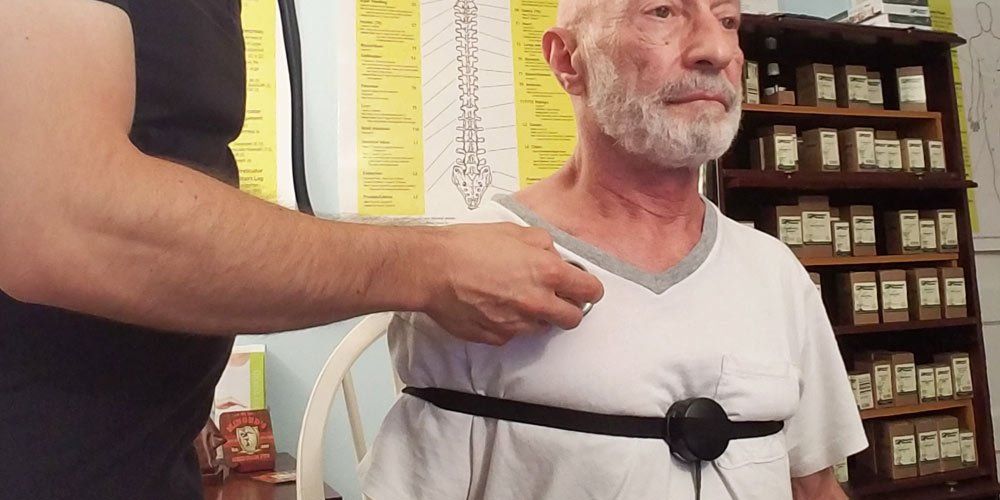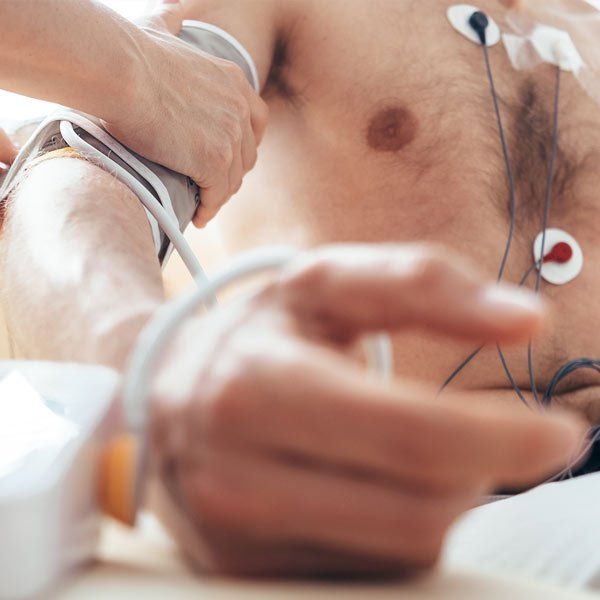What is a Heart Sound Recorder?
Heart sound recorders (HSRs) are medical devices used by alternative medical practitioners to gauge heart health in their patients. The device allows the professional to track the heartbeat rate, rhythm, and tone during various activities and in response to stimuli. The recorded reactions enable the practitioner to create a treatment plan for the individual to reduce heart stress and boost overall health.
Heart Sound Recorders Versus Conventional Medicine
Conventional medical providers also offer heart monitors, but the equipment most often only records heartbeats. The readouts can either record the information when a cardiac event occurs or record all heartbeats over a predetermined amount of time.
As a result, the doctor rarely has a reliable report of the patient's external stimuli, food consumed, or emotional status during the test. The monitor tells medical professionals about the existence of heart disease. To determine the severity of the problem and decide on treatment options requires additional testing.
Alternative providers use a HSR to track the heartbeat rate, rhythm, and tone for a more in-depth look. The provider uses the device with the patient present in their office. In-person monitoring allows the professional to have a baseline reading and graphs of how the patient's heart responds to various stimuli they receive during the test. The testing method alerts the provider to the patient's sensitivities. The information makes it possible for them to devise a personalized treatment plan.
What Can a Heart Sound Recorder Treat?
The heart is one of the body's busiest and most responsive organs. Hearts beat about 100,000 times a day. It is also one of the most sensitive organs to nutritional allergies and vitamin and mineral deficiencies. Studying the heart allows a provider to look at the patient's general health. The testing results can make it easier for an alternative practitioner to create a nutritional plan that will benefit the whole body.
An HSR can help the provider instantly determine any physical reactions patients have to specific nutritional supplements. The information can help the provider decide what the individual needs and what they should avoid. The determination can aid with treatment plans for other health concerns as it helps to boost heart health. Since the heart is consistently pumping in fresh blood, it receives nutrients in the blood first. The benefits of correcting vitamin and mineral deficiencies happen almost instantly in the heart. The diagnostic test results give the practitioner a guideline for the treatment plan.
Who Could Benefit from a Heart Sound Recorder?
All humans have elevated risks of experiencing heart complications regardless of their gender or ethnic group. Cardiovascular disease is the leading cause of death for all adults. In the United States alone, someone has a heart attack every 40 seconds. About 660,000 Americans die from heart-related ailments every year. Even people who do not have any known family history of cardiovascular disease or have not experienced prior heart-related complications could benefit from undergoing an examination with a HSR. sound recorder.
The device offers extensive benefit potential for the entire body. Deficiencies or sensitivities recorded through the monitor allow the provider to know how the remainder of the system will also respond to stimuli. Keeping the heart safe and healthy with natural measures will promote better overall wellness.
Potential Results from a Heart Sound Recorder
The results of a HSR could include a need for more in-depth research into heart health and the performance of the other glands and organs in the body if the provider discovers anomalies. In addition, the testing allows people to have health problems resolved before they cause a cardiac event.
Most people using the device will have the ability to improve their diet through whole foods and targeted supplementation to correct their imbalances. In addition, the patient discovers how stress, depression, insomnia, and other issues affect their hearts. Data-driven treatment plans help protect and strengthen the heart as they help the rest of the body. As a result, patients can expect to feel less anxiety, more energy, and a better overall sense of well-being.
The Endocardiograph was the initial device designed by Dr. Royal Lee. In 1937, the doctor improved his design by developing the Heart Sound Recorder. Since then, the device has provided a simple to perform, non-invasive, and comprehensive look at heart activity. In addition, the device can gauge the initial heart health and the effectiveness of treatment plans from an alternative care provider.
Additional Resources
- Heart Disease Facts - Center for Disease Control and Prevention (CDC)
- Heart Sound Recorder Practitioner - Dr. Michael Minond
- The Principals of the HSR - Heart Sound Recorder
- Cardiac Event Recorder - Heart Attack and Stroke Symptoms
Additional Information - Contact
Copyright 2020 All Rights Reserved. Art Licensed by Shutterstock©



